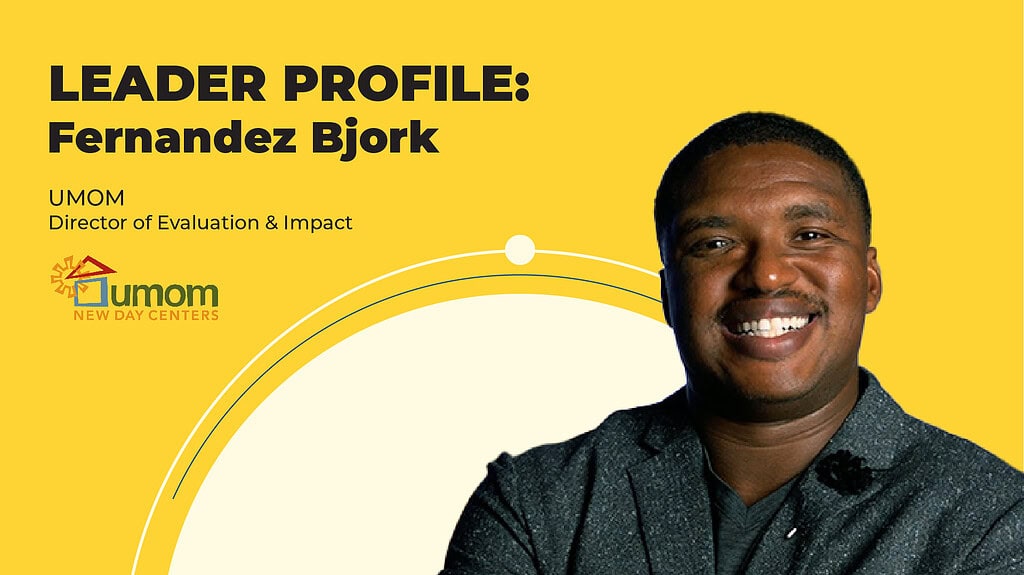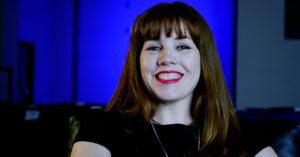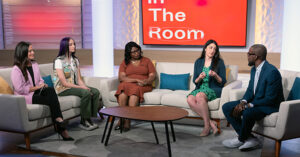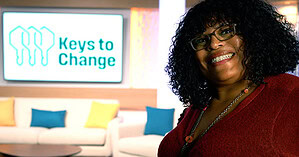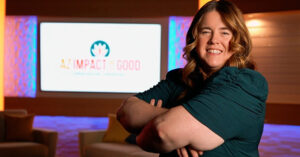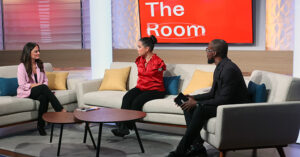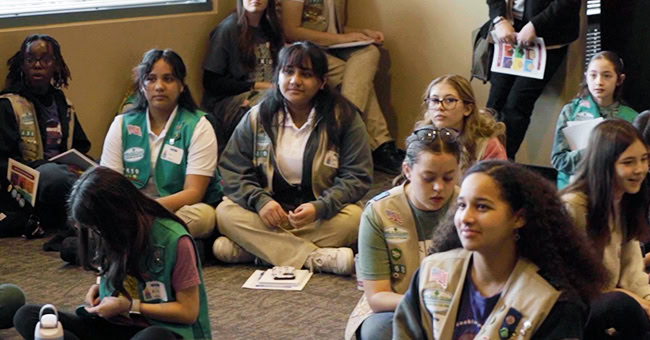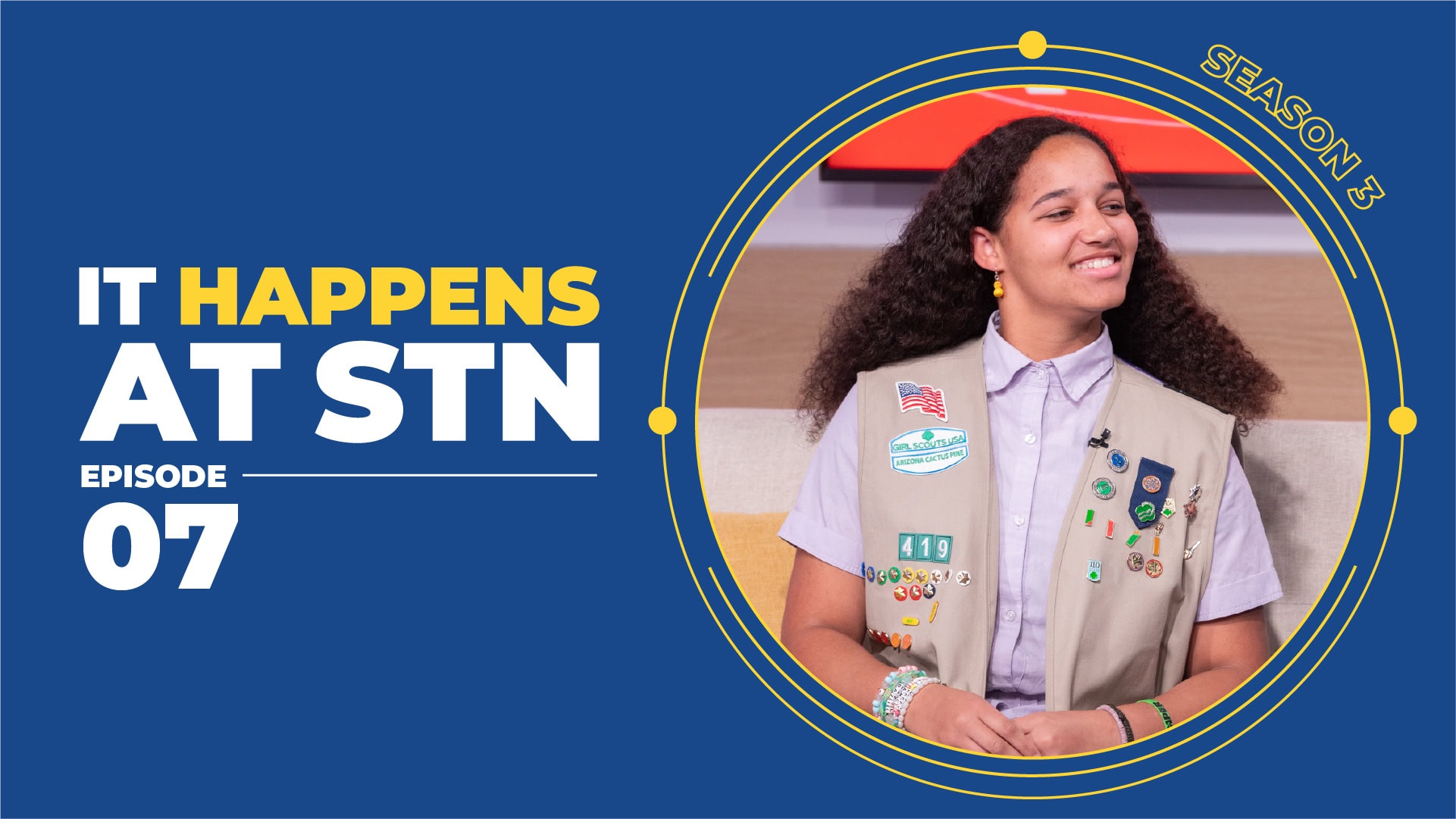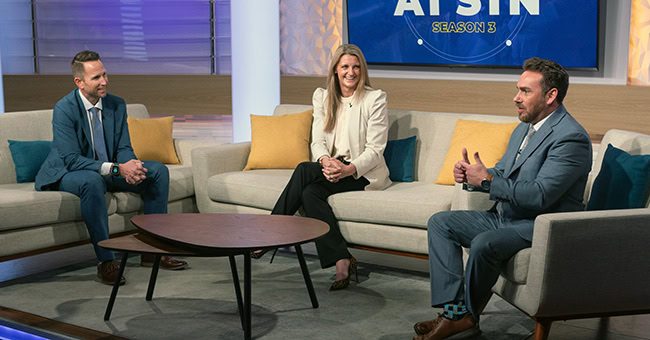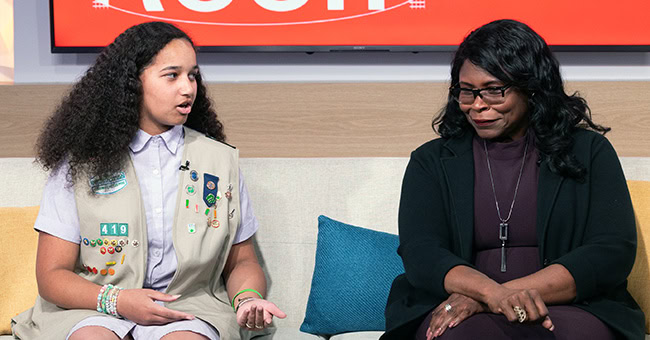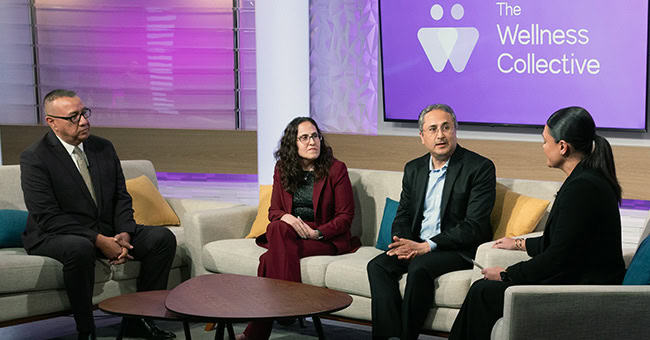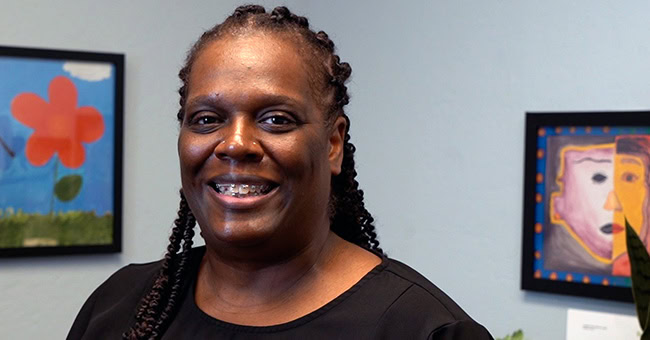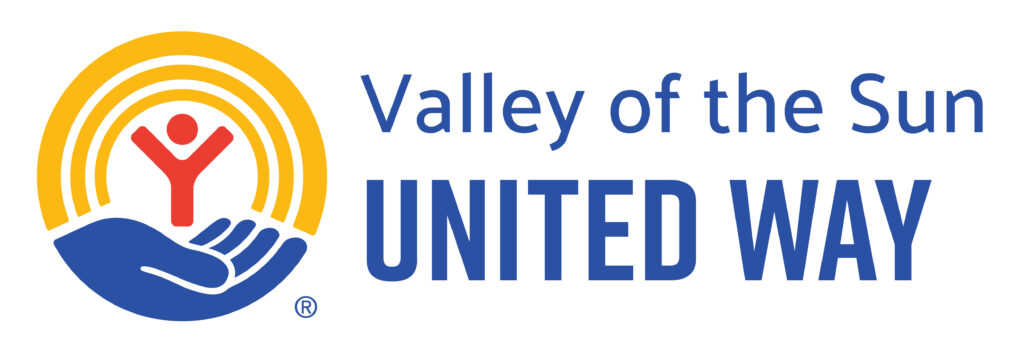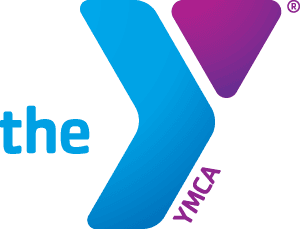PHOENIX (STN) – Moving from foster home to foster home and suffering significant abuse as a child wasn’t easy on Fernandez Bjork, but it didn’t discourage him either.
This past month, the Director of Evaluation & Impact at UMOM sat down with the STN team to trace the journey that took him from a rough childhood, through the adoption process and landed him a job jumping out of planes as an Airborne Infantryman.
He also talks about his past experiences, the parents who adopted him, and one special social worker who inspired him to make a career out of always helping those who need it.
Watch the video from the November episode of ‘It Happens at STN’ and read the exclusive, extended transcript of his interview below.
Watch the video from the show and read the extended, exclusive transcript of his interview below.
This transcript has been edited for clarity and consistency.
FERNANDEZ BJORK:
My name is Fernandez Bjork and I’m the Director of Evaluation and Impact at UMOM
STN:
You’ve obviously had quite a journey, and we will get to where you are today in a bit, but can you start us off at the beginning? Where does your story start?
FB:
I am originally from Birmingham, Alabama. I moved around to a bunch of places in Alabama. Went through the foster system. When I ended up having a foster mom or ended up staying at a place that was a little bit stationary, me and my brother Eric, ended up going through a pretty significant amount of child abuse in those six, or seven, eight years. I ended up running away five times. The cops kept bringing us back and then eventually ran away.
I want to say the fifth time we told the story [to] the social worker, we ended up leaving that place and getting with a new foster family that ended up adopting us
Tony and Margaret Bjork are the ones [who] adopted me. So my name started as Fernandez Little and now I’m Fernandez Bjork.
That social worker and the work that she did is the reason why I’m so passionate about doing this.
STN:
You mentioned the family that adopted you and your brother and helped you get out of what you called a ‘significant’ amount of child abuse. What was your relationship like with them?
FB:
It was very hard dealing with that trauma. I was still having some of the actions that I think had kept me alive or had just kept me and my brother safe. Those behaviors kind of impeded the life that I lived with them.
They’re very good people. They’re still my parents to this day. I don’t call them my stepparents, they’re my parents.
Having a dad and a mom and a house that was safe allowed me to be the man that I am today and they fostered and adopted a lot more children and they’re all doing well today.
STN:
What is the most impactful, good memory you have of growing up with them?
FB:
I think with them it really was just eating three times a day, [and] not getting beaten. One of the things that they did was expect a measure of discipline, a measure of character and morality out of us while still addressing some of the trauma that we had. I think that that is the piece that has allowed me to be here.
STN:
And, what about your relationship with the social worker who you said inspired you so much?
FB:
Her name is Ms. Lynn. I’ll just say that she is the most impactful person, especially in a place like rural Alabama. Social workers don’t get paid too well there. Having her care about our situation [was] just impactful. I still keep up with her today.
It takes one person to care. I think that in social services and whatever strata or realm that you’re in, it all comes down to one person from the macro to the micro to a person. I think it comes down to caring about a person doing things beyond their job description. I think caring about the lives of others is the basis of what we do here and I think that that is what has affected me the most.
STN:
Taking into account everything you’ve lived through, the people you’ve met, both positive and negative, that have molded you into who you are today, what drives your passion for the social transformation that you’re currently seeking?
FB:
A couple of things drive it. Obviously, my childhood and doing my best to win every single day and just be a better person after I got adopted.
And, I would say my time in the military, in the infantry and the Airborne Infantry. It’s about the duty. It’s about completing the mission every single day. Striving with your unit, your teams, [and] your company to be better every single day is what we are about in social services and also at UMOM.
The fight to end homelessness, I think never stops. That has been my calling at UMOM. That’s been my attachment to this work and the company that I work for is that it’s never over. There’s a hope that we do one day solve homelessness. But at the end of the day, every single year, it’s a fight to try to reduce that number as best that we can.
STN:
We’ve talked a lot about your family, but we haven’t touched on why and how you ended up in the military.
FB:
I knew as a kid that I always wanted to be in the military. It was something that I was always attached to. I would read these stories when I was younger about Ulysses S. Grant and I was very, very drawn to the Civil War and the symbolism of it. So I always wanted to be in the military.
I knew it going through high school and the moment that I could join, I joined up and I wanted to be in the infantry. I wanted to be a paratrooper. I had read the stories about the guys that had jumped out of planes in World War II and I wanted to be a piece of that.
The military does such a good job of rehabilitating young people because of the wins involved. You graduate basic training, that’s a win. You’re forever a graduate. You’re always a soldier no matter what you do. You do advanced individual training and you’re part of the infantry. You never stop being an infantryman. You’re that for life. You go to your unit, you’re part of that unit for life. The unit that I was in jumped into World War II. You end up being a piece of all of these, from being a soldier to being an infantryman, to being an airborne infantryman, to then being in a unit of airborne infantrymen. That builds a person up to being a man or a woman.
STN:
Eventually, the combination of your experiences with social workers and the foster system as a youngster and your time in the military pushed you into a life of service and advocacy which, eventually, landed you at UMOM.
FB:
At UMOM I’ve run the entire gamut. I started as a case manager at OMI [and] did that for some time. I then moved over to being a workforce specialist. Then I gained a love for helping our clients get jobs, [and] ended up becoming a coordinator. Then I ended up becoming a manager, then a director of workforce development.
I ended up going on deployment, when I came back I got the opportunity to be the director of evaluation impact over data and evaluation. That allows me to take a macro look at our processes, our internal systems, our outcomes, and then collaborate with other members at UMOM to create plans on how to better serve our clients. Recently I’ve also taken over logistics.
STN:
So, you’re a strategist, wanting to see the bigger picture and how to best serve those who need it?
FB:
Absolutely.
STN:
So, in order to see that bigger picture and best serve the people who need it, what do you look for in the other leaders and community change-makers with whom you collaborate?
FB:
I look to understand their place and what they want out of this. How can I move their way to assist them in what they want [and] what they need. That goes for the leaders in our company as well as people out in the community. I want to gain an understanding of their goals, gain an understanding of how that helps our community at large, and then [understand] what I can do to move resources that I have available.
STN:
You treat the collaboration process as a two-way street.
FB:
Absolutely. I think that in social services, especially, everything that we do, we all play a role. What’s awesome is that there are so many people in this community who care deeply about our cause and because there are so many people who care, collaboration is the least that we can do to serve the people out in our community.
STN:
When one of those people who care deeply about your cause want’s to help, how do you like to be approached?
FB:
In any way that they want to. There’s so much collaboration that has happened just in the hallways of STN after episodes here. I think just in any mode that that person feels comfortable with.
I love this. I love what we do. So you can reach out to me at any time, any hour, and I’m willing to just even strategize and pick the brain and collaborate on how we can do our best to try to prevent homelessness.


